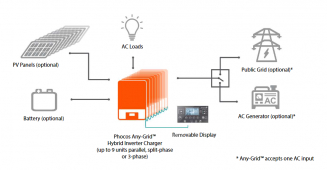Fatterwack
New Member
- Joined
- Aug 15, 2022
- Messages
- 10
Yet another newbie! Want to go entirely off grid with my home. Winter drawdown approx 11kWH per day, summer, 5 to 5kWH. I live south France close to Spain so plenty sun all year. I'm on a 240V system. My thoughts: 4 x SOK 4.8kW 48V batteries with server rack; not sure about inverters as I think 2 for my needs plus 1 licensed to feed solar directly into grid. Was looking at GroWatt 5k. Solar panels - advice pls. Will go with monocrystallines; about 5kW total - house aspect is east/west with a south facing wall I can use (3 stories plus grnd flr home so it's a big wall!!).
I will probably import a system from USA as even with tariff it's cheaper/more reliable/better warranties than EU. So, need to grab everything from nuts and bolts to the big stuff!!
Any help much appreciated. ?
I will probably import a system from USA as even with tariff it's cheaper/more reliable/better warranties than EU. So, need to grab everything from nuts and bolts to the big stuff!!
Any help much appreciated. ?



